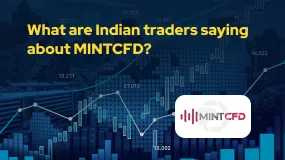简体中文
繁體中文
English
Pусский
日本語
ภาษาไทย
Tiếng Việt
Bahasa Indonesia
Español
हिन्दी
Filippiiniläinen
Français
Deutsch
Português
Türkçe
한국어
العربية
Doctor Trapped by 520% Profit Promise, Loses RM8.7 Million
Abstract:A 53-year-old doctor in Malaysia has lost her entire life savings of RM8.7 million after falling prey to a sophisticated online investment scam that promised massive returns from stock trading.

A 53-year-old doctor in Malaysia has lost her entire life savings of RM8.7 million after falling prey to a sophisticated online investment scam that promised massive returns from stock trading.
According to Johor Bahru Selatan deputy police chief Azrul Hisham Shaffei, the woman came across a trading advertisement on social media in April. Intrigued by claims of high profits, she began communicating with an individual featured in the ad to learn more about the investment opportunity.
The scammers presented her with a tempting offer of up to 520% on her capital. Enticed by the promise of fast and substantial profits, she proceeded to transfer large sums of money to multiple bank accounts over three months, from May to July. In total, she deposited RM8.7 million, trusting that her investment would yield high returns.
However, the promised profits never materialised. Instead, the victim was told that her investment had only generated RM6,033. To access her funds, she was instructed to pay an additional RM500,000 as a “deposit”. The scammers threatened to freeze her account if she refused to comply, which ultimately led her to suspect she had been defrauded.
She reported the case to local authorities on Tuesday. The investigation is now underway under Section 420 of the Malaysian Penal Code, which covers offences related to cheating.
This case underscores the tactics commonly used by cybercriminals: exploiting victims trust with offers that appear both legitimate and lucrative. Social media has become a key platform for scammers to reach potential targets, often with well-crafted advertisements and convincing profiles.

In the wake of such incidents, experts stress the importance of verifying the legitimacy of any investment platform before transferring funds. Tools like WikiFX are proving valuable in this regard. WikiFX offers detailed background checks on brokers, including their regulatory status, customer feedback, and overall safety scores. By providing insights and risk alerts, WikiFX enables users to make informed choices and avoid engaging with unlicensed or fraudulent platforms. With scams growing increasingly sophisticated, conducting proper due diligence can mean the difference between financial security and devastating loss.

Disclaimer:
The views in this article only represent the author's personal views, and do not constitute investment advice on this platform. This platform does not guarantee the accuracy, completeness and timeliness of the information in the article, and will not be liable for any loss caused by the use of or reliance on the information in the article.
Read more

AssetsFX Scam Alert: 5 Troubling Signs
Forex trading has become a critical game now because of advancements in technology. Due to this Unfortunately, scam brokers have also entered in the Forex market. Therefore, you need to stay alert. This article aims to warn all traders and investors. Read carefully and stay aware.

Forex4Money: Where Your Money Goes In, But Never Comes Out!
Discover how Forex4Money traps investors with fake profit promises and blocked withdrawals. Read real complaints and protect yourself from this unregulated forex scam.

Forex Success Stories: Lessons You Can Use to Win
There can be many ups and downs even for the world’s best forex traders. However, they remain undeterred in their vision to overcome the challenges that come their way. That’s why they form part of forex success stories that continue to inspire generations. One can inherit some lessons to be among successful currency traders. In this article, we will be sharing the lessons you can use to be successful in forex trading.

What are Indian Traders saying about MINTCFD?
MINTCFD is an India-based broker. It's important to note that independent watchdogs have issued scam alerts against the broker. They label MintCFD as risky and possibly fraudulent. In this Article, we will tell you the red flags of MINTCFD to protect your money
WikiFX Broker
Latest News
Top Forex Chart Patterns Every Trader Must Know
Adidas to raise prices as US tariffs cost €200m
Top 4 Forex Scam Tactics Fake Brokers Use to Trap Investors
FRAUD ALERT! Spanish Regulator, CNMV Exposed Scam Brokers
How to use mt4?
Fortrade: A Closer Look at Its Licenses
Euro zone economy ekes out better-than-expected 0.1% growth in second quarter
Inefex: Mastering the Art of Duping Forex Investors
10 Best MUST- READ Books on Forex Trading
Companies from Stanley Black & Decker to Conagra are saying tariffs will cost them hundreds of millions
Currency Calculator


